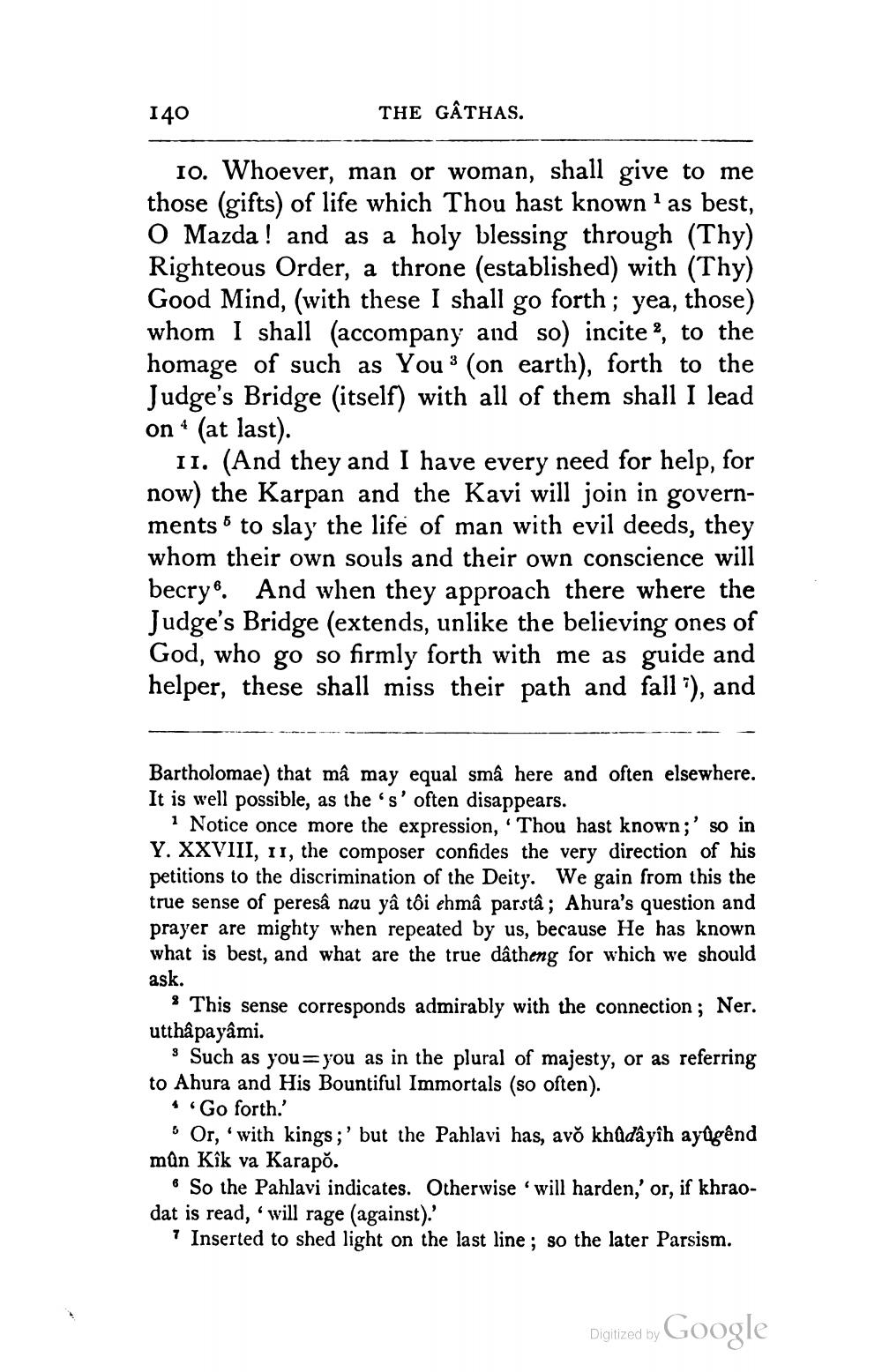________________
140
THE GÂTHAS.
10. Whoever, man or woman, shall give to me those (gifts) of life which Thou hast known as best, O Mazda ! and as a holy blessing through (Thy) Righteous Order, a throne (established) with (Thy) Good Mind, (with these I shall go forth; yea, those) whom I shall (accompany and so) incite ?, to the homage of such as You 3 (on earth), forth to the Judge's Bridge (itself) with all of them shall I lead on * (at last).
11. (And they and I have every need for help, for now) the Karpan and the Kavi will join in governments to slay the life of man with evil deeds, they whom their own souls and their own conscience will becry. And when they approach there where the Judge's Bridge (extends, unlike the believing ones of God, who go so firmly forth with me as guide and helper, these shall miss their path and fall“), and
Bartholomae) that mâ may equal smâ here and often elsewhere. It is well possible, as the 's' often disappears.
1 Notice once more the expression, Thou hast known;' so in Y. XXVIII, 11, the composer confides the very direction of his petitions to the discrimination of the Deity. We gain from this the true sense of peresâ nau yâ tôi ehmâ parstâ; Ahura's question and prayer are mighty when repeated by us, because He has known what is best, and what are the true datheng for which we should ask.
* This sense corresponds admirably with the connection ; Ner. utthapayami.
Such as you=you as in the plural of majesty, or as referring to Ahura and His Bountiful Immortals (so often).
• Go forth
• Or, 'with kings;' but the Pahlavi has, avó khûdâyîh ayûgênd mûn Kîk va Karapo.
* So the Pahlavi indicates. Otherwise 'will harden,' or, if khraodat is read, will rage (against).'
* Inserted to shed light on the last line; so the later Parsism.
Digitized by
Digitized by Google




